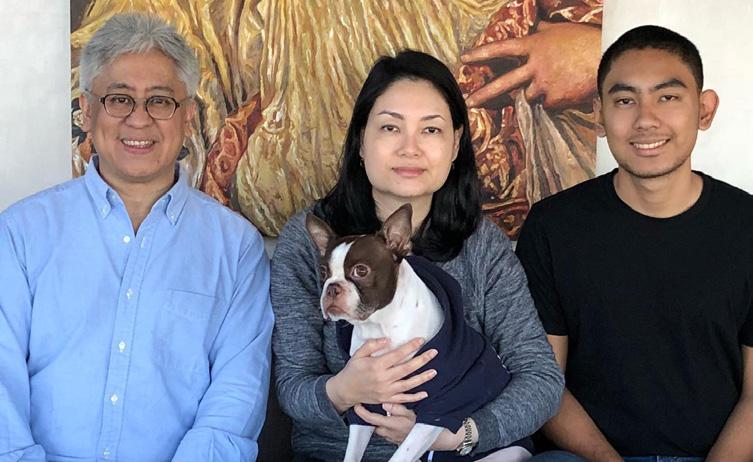
8 minute read
Senior Essays
David de Leon Fernandez
BA, Asian & Pacific Islander American Studies BBA, Business Analytics 2020 Cypher Award President, Filipino American Student Association 2019-2020 Thesis, “The Construction of a New Filipino National Identity: How State-Sponsored Labor Brokerage Changed the Philippines”
Advertisement
Photos Courtesy of David Fernandez.



Photo by Catie Nguyen. Finding Where I Fit
There’s a multitude of worries in a William & Mary student’s life while on campus -- academics, clubs, and their own well-being to name a few. I struggled with all of these, where I often felt like I was going from one thing to another without thinking about myself or the consequences it would have on me. However, the three factors that kept me afloat were the following: knowing I was studying something that I loved, the community I built the last three years, and my family.
It has been a journey stumbling upon the APIA major. It existed without me knowing about it, and it helped me understand my positionality in the horribly flawed United States. Ever since I arrived at William & Mary I asked myself, “Where do I fit into all of this?” APIA helped me understand not only myself but the larger context of what it meant to be Asian American. As a transnational individual, the most difficult thing for me is forming bonds to a land, but I felt that I finally accomplished that in the United States.
The community I have built the last three years took more than simply knowing a person by name. Nurturing those relationships has been one of the most rewarding parts of my time here at W&M. The best relationships, of course, came from the Filipino American Student Association. Without this club, I don’t think I could have navigated college the same way. It was my constant pillar that I knew I could look to when all else seemed out of order. Another cherished community I’ve had a pleasure to be a part of is the APIA program. This group of people, I believe, are the ones that have shaped the way I think and the ones that, I believe, think the most alike to me. No other major, in my opinion, has the strong student-faculty connection that APIA does.
Lastly, where would I be without my family? Thinking about my family during the school year usually made me sad. I mostly only got to see them once a year, never being able to see how much I was enjoying my time at William & Mary. I always wanted to share some big moments with my family such as FASA Culture Nights, college traditions, and simple walks around campus. However, I know that they will be able to see all of those accomplishments whenever graduation happens (thank you, COVID-19).
Thank you, APIA, thank you, friends, and finally thank you to my family. Let’s end capitalism together <3 and make a more equitable world!
Senior Essay Margaret Amira Chu
BA, Asian & Pacific Islander American Studies BA, History 2019 Freeman Intern Fellow in Singapore Co-Director, Asian American Student Initiative, 2019 Thesis, “Gidra: Defining a New Asian America from ‘99-’01”

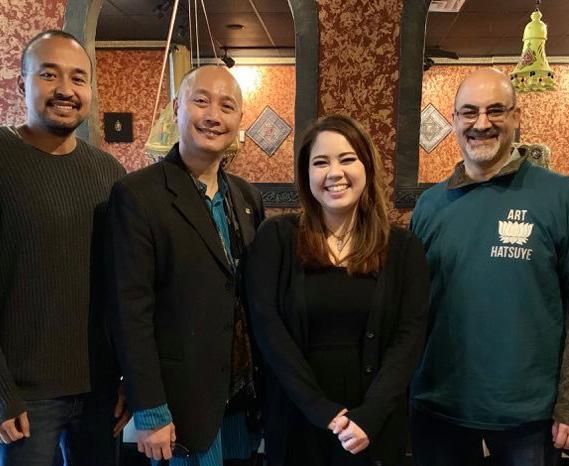
Photos Courtesy of Maggie Chu.



Rooted in Care, Our Community Blossomed
Iheavily believe in the idea that relationships and community is what will drive social change. I am so lucky that I was able to have the nourishment to grow from my peers and professors in APIA. I want to become what those people were for me and build an Asian American community that is based in support and care for one another.
Over the last four years I have learned so much about what “care” looks like. It’s creating spaces for people to express themselves-- buying a meal for someone, being a shoulder to cry on when things get bad, or even just sending a text message to see if they’re alright. While selfsoothing and self-care is imperative, community care is what gets people out the door. to follow. I think it’s beautiful and intentional that the unofficial logo of APIA is a lotus. A lotus will flower from the swamp despite any adversity. Similarly, the program and I have grown so much together since I arrived as a freshman. The liminality that plagued me my entire life evolved into a strength in understanding the complexity of the systems that we exist in.
I want to see APIA continue to grow and care for one another. I want to keep the institutional history of the program alive so future students know the legacy they are following. The program at William & Mary has been built off of 10+ years of students and professors working together and is based in 50+ years of the movement for ethnic studies. The activism that has led us to where we are now has always been because we care about the community, and that is how we will continue to grow.
John Patrick Palicte Canteros
BA, Asian & Pacific Islander American Studies, Phi Beta Kappa BBA, Business Analytics 2020 Art Matsu Prize for Excellence in Asian & Pacific Islander American Studies Co-Director, Asian American Student Initiative, 2017-2019 2018 Freeman Intern Fellow in Hong Kong Thesis, “A Theater for the Nation to Come - Expressions of Ilustrado Nationalism and Architectural Memory”
Photos Courtesy of Patrick Canteros. Photos by Catie Nguyen.
Clamoring for My Ontological Reality

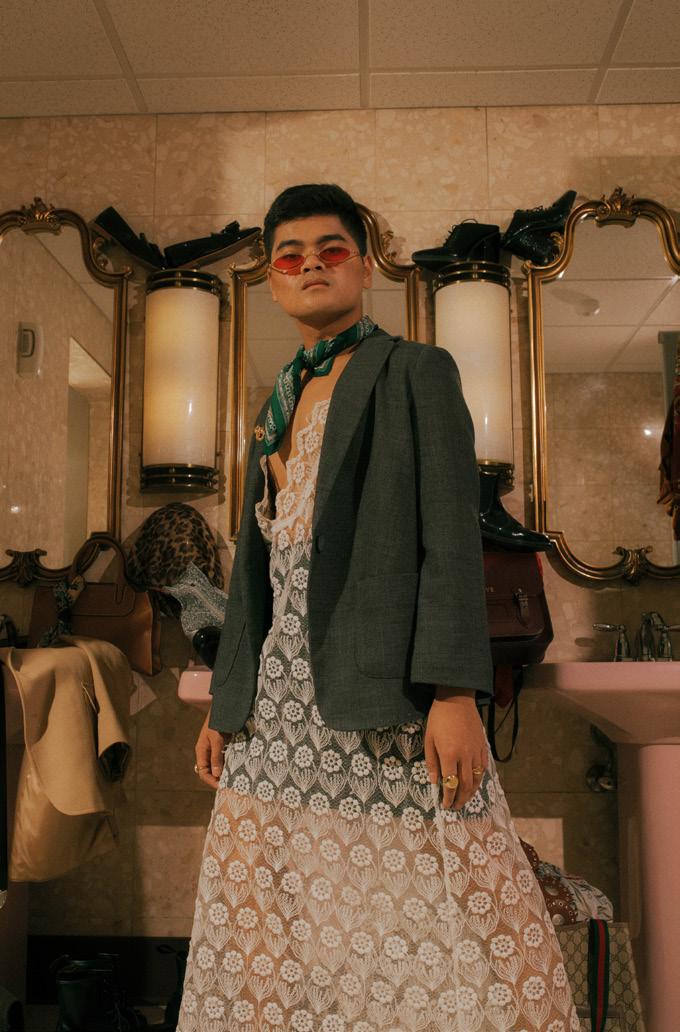
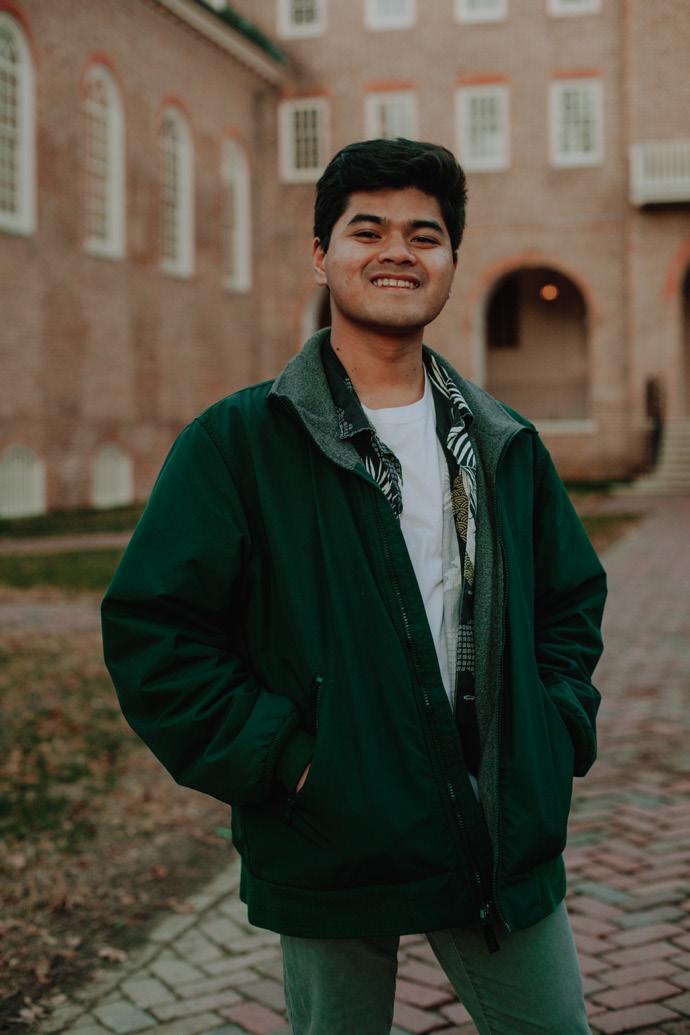
Ifirst encountered APIA in a dusty lecture room, tucked in the corner of Washington Hall. FASA, the Filipino American Student Association, had invited Professor Aguas to speak on Filipino history. Naturally, I arrived late. As I found a seat in the back, Professor Aguas stood center stage. All eyes were fixed on him as he powerfully wove the stories of our Filipino ancestors to a room filled by their diaspora. Manila galleons, Magellan, Lapu-Lapu, stories I vaguely, but already, knew. Then, he asked us about our surnames, making the point about how each, he said, were picked from a book and, thus, assigned. Suddenly, everyone around me had questions. All clamored for a history so evidently held from us. I was stunned silent. In the back, I sat in wonder of this new knowledge of my story.
This would not be the last but certainly the first moment where I truly understood the power of story. Entering college, I knew the potential of my future, how I would will myself in the next four years to become a doctor or lawyer. Little then did I know about the strength of my past. Today, I can trace all my accomplishments and all my endeavors to that very moment, when I stopped focusing on, “Who could I be?” and began to ask myself “Who am I?”.
From that moment on, APIA offered me a simple but powerful gift. APIA told me that my story mattered, that my history was worthy of research, and that someone of my background can and will be a leader. Majoring in APIA dared me to believe in the potential of a community that many have often wished away. It was a risk that I can proudly say was worth taking.
So as I look forward to my time after William & Mary, I am proud to include APIA as part, and parcel, to that story. And wherever I go next, I think Filipino national hero Jose Rizal said it best, “Ang hindi lumingon sa pinanggalingan ay hindi makarating sa paroroonan.”
One cannot arrive at their destination without looking back to where they’ve come from.
Emma Anne Shainwald

BA, Asian & Pacific Islander American Studies, with Honors 2020 Ernestine Jackson Award for Cross-Cultural Understanding 2018 Freeman Intern Fellow in Shanghai Co-Director, Asian American Student Initiative, 2018-2019 Honors Thesis, “Subgroup Diversity in Higher Education: A Case Study for Asian American Recruitment”
Photos Courtesy of Emma Shainwald.
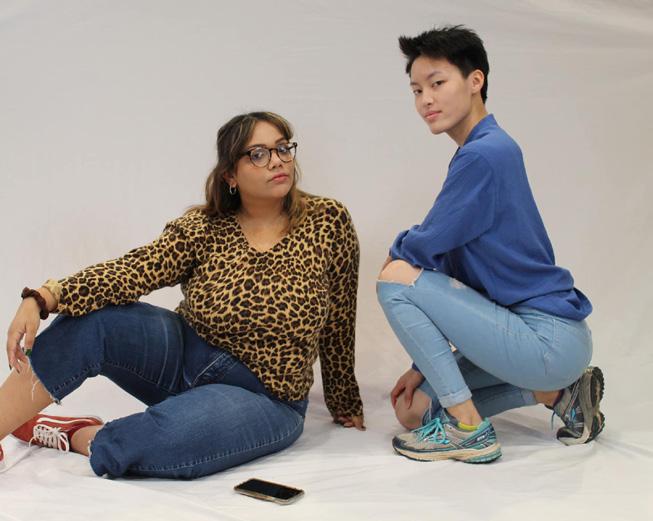

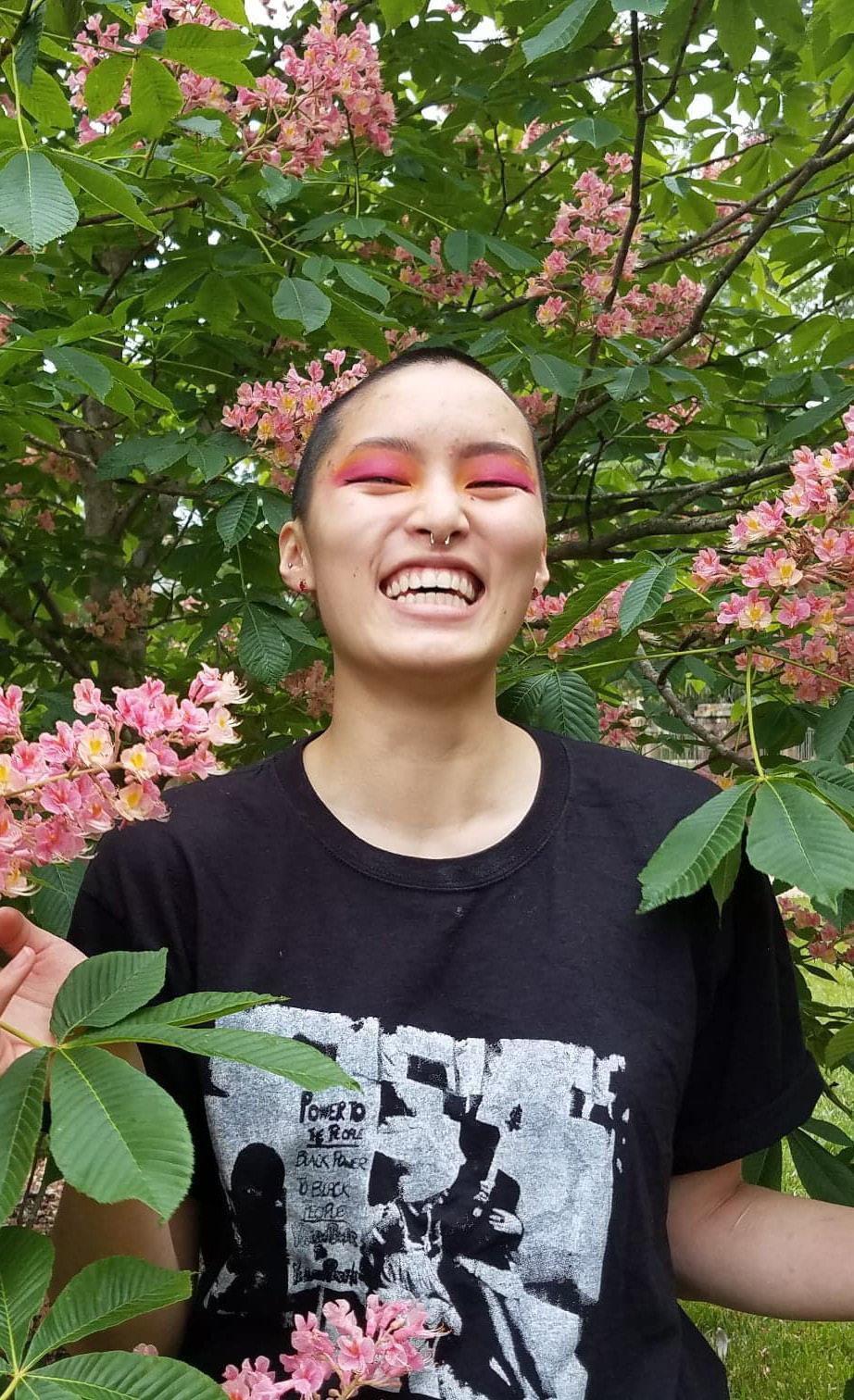
The Power of Intentionality and Intersections
My first year on campus, I joined the Asian American
Student Initiative and was quickly thrown into the world of activism and politics. I immediately learned to associate AASI with the black t-shirts that plastered “ASIAN
PACIFIC ISLANDER AMERICA” in bold letters with the iconic lotus stamped on the front pocket. Soon enough, I was incredibly excited to finally become a proud owner of this shirt and it wasn’t long before it became worn from consistent use. The shirt became a staple of our presence as a politicized APIA community, one refusing to be a model minority. It cycled through my laundry cycles constantly as it
SPRING 2020
made its way through Black Lives Matter protests, meetings with President R*vely to discuss the demands of #BuiltOnOurBacks, DACA walkouts and so much more. It wasn’t just a shirt sharing our connection to the APIA Studies program. It was a statement that declared that just here to support, but our solidarity is organized.
After a long legacy of fighting for an established APIA program, one which started long before I even stepped foot on campus, we finally achieved our goal in 2019. My love for the program comes from its intentionality, where self design majors were crafted carefully for each student and each declaration was precisely numbered and documented. The program became a family where upperclassmen and professors became mentors to new students.
Taking APIA Studies classes meant I could learn about myself and contextualize my experiences as a part of something outside of myself. APIA Studies taught me that we don’t study it to learn about APIAs alone or to feed an interest, although it may start that way. We study it because it gives us the APIA experience as a lens to understand a deeper history of resistance for all communities.










